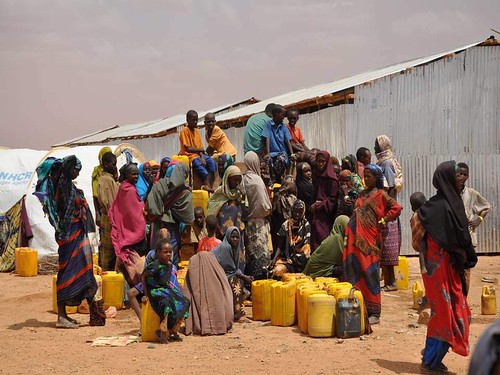
The EU is not flavour of the month, or even the year. The media – including the Vatican’s l’Osservatore Romano and Vatican Radio – is full of stories of economic and political crisis, loss of global influence, and the problems of the euro. Even friends wonder whether “Europe”, or the EU in particular, has had its day. And sometimes the EU can be seen to be its own worst enemy, confusing us with endless acronyms, incomprehensible jargon, and too often an apparent rush for the lowest common denominator amongst its 27 member states on whatever issue you care to mention.
Much of this is, of course, pure caricature. Contrary to what you might read in the papers, the United Kingdom is a proud and energetic member of the European Union. And we are delighted to celebrate European successes. One such is the celebration this week of 20 years of work of ECHO (another acronym!), the European Commission’s Humanitarian Aid and Civil Protection Office.
I have worked with ECHO in several different parts of the world. Stripping away the jargon, ECHO is the principal arm of the European Union for the provision of humanitarian aid, civil protection and disaster response, alongside the member states themselves. The European Union is the world’s largest source of humanitarian aid. The European Commission alone provided relief assistance to 115 million people last year, for a total amount of €1,154 billion. Since 1992, assistance has been provided to beneficiaries in over 140 countries.
Sadly, earthquakes, tsunamis, cyclones, famine, ethical and sectarian violence and other disasters remain a fixture on the human scene. The EU could put up its drawbridge and argue that it had problems of its own to tackle. That it does not is witness to the sense of solidarity of Europeans, and our readiness to do what we can to help others. The United Kingdom plays a fundamental role in this work, collectively through our EU contributions (around 16% of the total ECHO budget), and through our bilateral aid programmes managed through DFID. We are right, and pleased, to do so.
